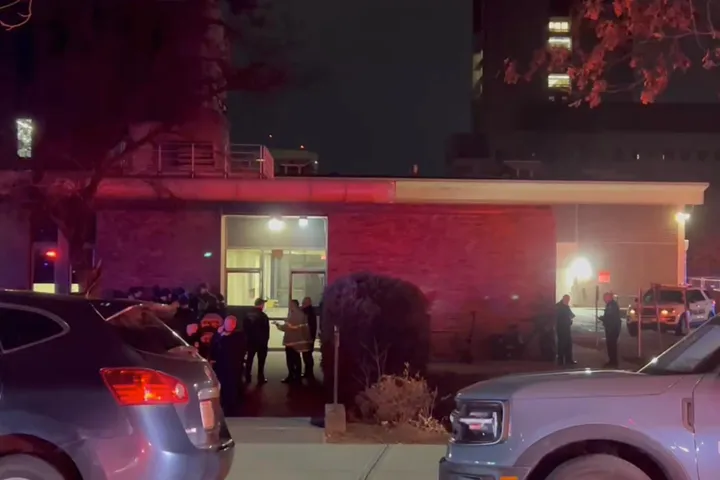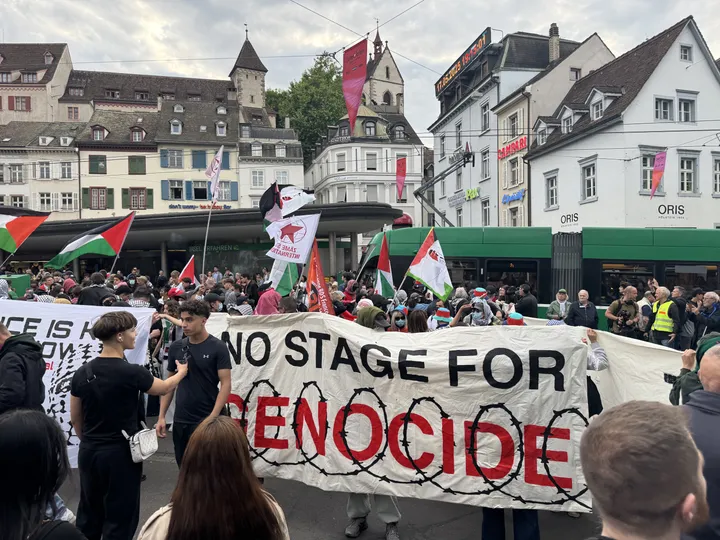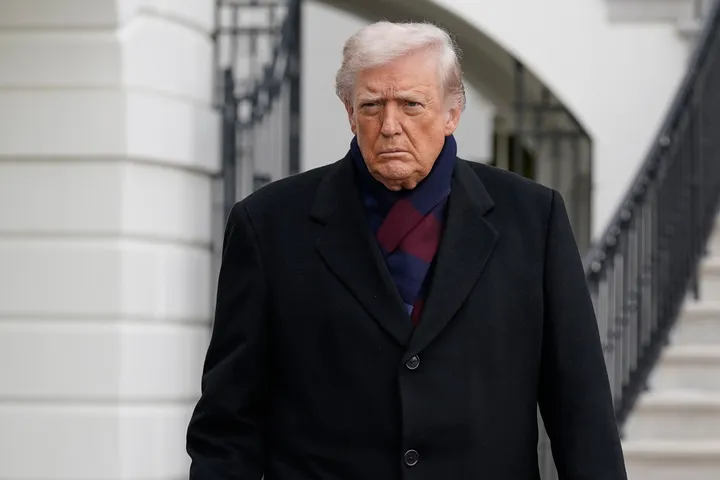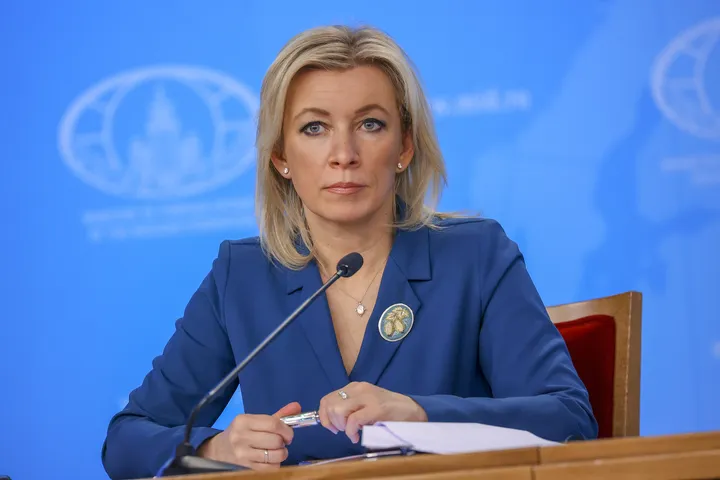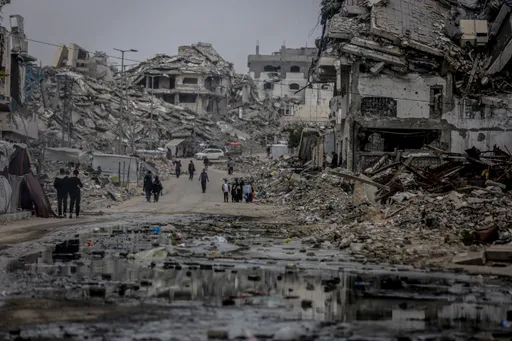ISTANBUL, Türkiye — Twenty two years ago, Teoman Koman, a four-star Turkish general, asked the prominent conservative politician Hasan Celal Guzel if he would like to become prime minister. It was a tempting offer.
Koman was in charge of Türkiye’s powerful Gendarmerie forces at the time, and he was an old friend of Guzel's, who had been a minister in the 1980s. He was also very much part of Türkiye’s notorious deep state at a time when the Turkish "state within the state" was at the pinnacle of its nebulous stranglehold on power.
Koman wanted to discuss the coup he was plotting. The coup would indeed be carried out successfully in five months time. On February 28, 1997, a campaign to destabilise the coalition government led by Prime Minister Necmettin Erbakan began in what is now remembered as the country's "postmodern coup" – the only coup in Türkiye’s coup-rich history not to take place at gunpoint.
The two old friends met in the headquarters of the Gendarmerie General Command in Türkiye’s capital Ankara in mid-September 1996. Koman had reason to believe that Guzel would be sympathetic to his proposal.
Koman may have been a soldier and Guzel a civilian politician, but the two men knew each other well and had often worked together on sensitive issues. In the late 1970s and early 1980s, Guzel was in charge of coordinating the information exchange between the army and intelligence services. He later became minister of national education.
During the 1980s, Koman was, meanwhile, head of the department of public relations, which was part of the powerful National Security Council. He was head of the National Intelligence Organisation (MIT) from 1988 until 1992.
They discussed their mutual concerns about the direction the country was taking for hours, until midnight, Guzel told TRT World in a rare interview in early 2017. He passed away a year after giving the interview. Koman talked about the issue of irtica, or "Islamic reaction," a term Türkiye’s strict secularists used to describe what they considered to be the mindset of religiously-minded Turks.
The generals were disturbed by the growing popularity of the Welfare Party (RP), Erbakan's religiously-inspired party which had won the largest bloc in parliament for the first time in 1996. The view that irtica was a leading existential danger to the Turkish state also coincided with NATO's changing threat perceptions during that period. After the fall of the Soviet Union, "Islamic fundamentalism" was fast replacing communism as the leading global threat in the eyes of the Western military-industrial complex.
Koman and other Turkish generals, with deep ties to NATO, were strongly influenced by this new global strategic vision.
"The conceptualisation of Türkiye’s internal and external threats was based on NATO concepts," Bulent Orakoglu, who was the head of intelligence for the Turkish police at the time of the postmodern coup, told TRT World in an interview. "Before 1980, our primary threat was judged to be communism, because it was a primary threat according to the US."
Towards the end of the conversation, Koman finally got to the point of their meeting: "Look Hasan Bey [Bey is a Turkish term of respect]. Between us, we are going to intervene [against the elected government]."
"Following the [military's] intervention, we intend to install you or Mesut Yilmaz [the leader of the Motherland Party, a mainstream conservative party] as prime minister," Koman said to Guzel.
Despite their years of collaboration, Guzel was outraged. Guzel, who was age 71 at the time of the interview, says he leapt out of his seat right after Koman offered him the premiership.
"All my life I have struggled against these kinds of coups. How could you offer me a job like this?" he replied emphatically to the general.
He wanted to leave, but Koman asked him to sit down, and continued trying to convince him.
"I tried to make him understand how damaging this coup could be for the country," Guzel told him. He says he urged the general not to perpetuate Türkiye’s long history of coups.
But Koman and his co-collaborators had already made their decision.
A "postmodern coup"
Guzel went to Prime Minister Necmettin Erbakan.
"These men are preparing [for a coup]," he warned Erbakan, who, he says, just smiled at him with characteristic optimism.
"Nothing will happen. Don't worry!" Erbakan responded.
Erbakan thanked Guzel for his concern, but confidently repeated that there would be no military coup. Guzel did not give up there, however. He made an appointment with then-President Suleyman Demirel, a conservative leader, who had already been forced from power by the military in both the 1971 and 1980 coups.
"I also informed him about military's preparations. He was extraordinarily intelligent and knew me very well," Guzel said. "He took me seriously."
But not exactly in the way Guzel had expected. Having already been unseated twice as prime minister and been banned from politics for most of the 1980s, Guzel assumed the president would battle to uphold the democratically-elected government. This time around, however, Demirel chose to ensure his own political survival by allying with the military instead.
"Later I really regretted this decision, because informing Demirel allowed him to prepare himself politically for the coup," Guzel said. "He was the biggest civilian supporter of February 28."
Guzel was not the only person who tried to prevent the coup. Orakoglu, the head of intelligence, had also received several documents from his contacts in the army that tipped him off that a coup plot was being hatched. He likewise attempted to warn the Erbakan government – reaching out to the justice minister, the interior minister and the prime minister – but the top secret dossier he complied ended up in the hands of President Demirel, who forwarded it to the very people in the army who were preparing the coup.
Five months later, on February 4, 1997, 20 tanks and 15 armoured vehicles drove through the streets of Ankara in an ominous warning to the government. On February 28, the military issued a stern memorandum against the Erbakan-led coalition government. The statement condemned the Welfare Party and its coalition partner the True Path Party (DYP), another conservative party that had long been led by Demirel himself, for allegedly violating the country's "secularist nature."
Within a few months, the Erbakan government had effectively collapsed. Unlike the 1960, 1971 and 1980 coups, which had all involved overt military intervention, the 1997 coup was achieved without tanks or soldiers. Instead, the government was forced out through deft behind-the-scenes political manoeuvring by the generals. Koman was one of the principle masterminds.
In mid-June, Erbakan resigned, a move intended to allow his coalition partner Tansu Ciller, the leader of the DYP, to become prime minister. But Demirel broke with long-held protocol, asking the opposition conservative party leader Mesut Yilmaz to establish the new government. Yilmaz was, of course, the other name Koman had mentioned to Guzel as a potential premier on that night five months earlier. Koman's plan had been achieved.
Because he had sided with the civilian government, Orakoglu was convicted of spying against the military. The sentence was handed down by a court which was heavily influenced by the generals.
Guzel's outspokenness in the wake of February 28 also led to him being imprisoned, on the pretext that he had opposed the secular state by defending the rights of women who wore the headscarf.
The generals worked with their anti-Erbakan civilian allies – Demirel and Yilmaz, as well as the many prominent media organs that supported it – making civilians the public face of the coup.
"The military understood that they lost a great deal of prestige in the eyes of Turkish public following the previous coups," Guzel said. "Society had become more open, and it didn't approve of direct military intervention in politics. It would also not sit well outside Türkiye. The US advised them to do it this way."
The aftermath
Well beyond the toppling of the Erbakan government, the February 28 memorandum also opened the door to the purging of anyone suspected of religious leanings. The military established a clandestine working group called West Study Group (Batı Çalışma Grubu or BÇG in Turkish) which listed and categorised politicians, intellectuals, soldiers and bureaucrats depending on their religious and ideological beliefs.
"The monitoring and blacklisting activities of the BCG were illegal because you cannot blacklist people as long as they have not committed crimes," Orakoglu said. "According to some estimates, they had blacklisted as many as 11 million people."
TRT World was unable to independently verify the number of 11 million.
In the aftermath of February 28, some 2,000 officers were dismissed from the army on the grounds of irtica simply because they prayed regularly or if their wives wore headscarves.
"I heard [then Commander of the Turkish Armed Forces Ismail Hakki] Karadayı Pasha, with my own ears, say ‘If necessary, we will use arms.' Against whom? Against any people who wanted to defend their nation and country [against the coup] just as they did during the recent July 15 [2016] coup attempt," the former intelligence chief observed.
Following the collapse of the Erbakan government, an existing ban on women's headscarves in many public institutions was extended to include universities.
Huseyin Kivrikoglu, one of the coup leaders, confidently affirmed during a National Security Council meeting in 1999 that "February 28 will last one thousand years if necessary." Kivrikoglu, the head of the Land Forces Command at the time of the 1997 coup, was chief of the army when he made the infamous statement.
However, the regime was to last for no more than five years. In February 2001, a major economic crisis hit the country. Many Turks blamed it on the coalition governments that had first come to power in 1997.
The time was ripe for the rise of Recep Tayyip Erdogan, a powerful member of the Erbakan's Welfare Party, who emerged as a new and charismatic conservative figure in the early 2000s. Erdogan had been the successful mayor of Istanbul when the 1997 coup took place, but was prosecuted and imprisoned on charges of "inciting hatred and enmity based on religious and racial differences," after reading a poem during a speech in his wife's hometown, Siirt. This despite the fact that Ziya Gokalp, who wrote the poem, was a source of inspiration for the founder of the Turkish Republic, Mustafa Kemal Ataturk.
After the Constitutional Court closed the Welfare Party in 1998, ruling that the party had engaged in and supported anti-secularist activities, Erdogan and his allies decided to establish a new conservative democratic party. The Justice and Development Party (AK Party) came to power in 2002 in a landslide victory.
Ten years later, the AK Party government opened an investigation against the February 28 coup plotters and its enablers. Koman was detained during the investigation. He died in a military hospital during his detention in late 2013. The investigation against the coup plotters is still ongoing under charges of "participating in the overthrowing" of the then-Erbakan government by force.

